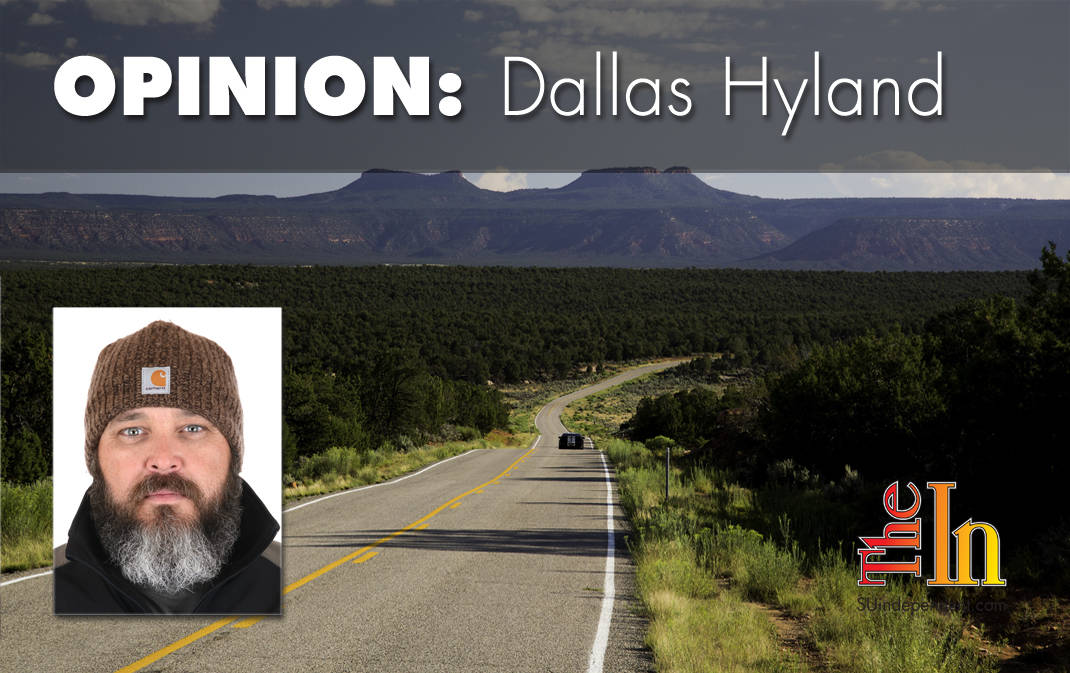
Outdoor retail companies Black Diamond and Patagonia are taking a stand on Utah public lands. The outdoor industry loves Utah, but enough is enough.
Utah legislators — in particular, those who are proponents for the transfer of control of public lands from the Federal Government to the State of Utah — have a conundrum on their hands.
How do they continue to keep a constituency that is largely uninformed on the matters of public lands happy while at the same time not dealing a catastrophic blow to their own economy?
Last week, the Salt Lake Tribune ran an editorial by Peter Metcalf, the owner of Black Diamond and one of the leading mavericks in the outdoor industry. Metcalf is also a driving force in the industry’s twice-annual Outdoor Retailer Show held in Salt Lake City.
Here is a portion of what Metcalf wrote:
“Gov. Gary Herbert and Utah’s D.C. delegation are leading a national all-out assault on the sanctity of Utah and the country’s public lands. Together, Utah’s political leadership has birthed an anti-public lands political agenda that is the driving force of an existential threat to the vibrancy of Utah and America’s outdoor industry, as well as Utah’s high quality of life.
Specifically, Utah’s top elected officials’ stated strategy is to take down our newest national monument, Bears Ears, gut the Antiquities Act, starve funding from federal land management agencies and transfer our country’s public lands to state ownership, where the state will sell and prioritize extractive use over all others.”
Metcalf also said, “By our industry’s twice-annual trade show remaining in Utah, we are actually complicit collaborators in our own demise.”
He is calling for the Outdoor Retailer Show to complete its contractual obligation in 2018 and then subsequently find another state to host the show. This is predicated on the notion that if the only thing Utah legislators understand is money, perhaps this will send a very clear message that following the path they are on might cost them a lot of it as well as severely and negatively impact a large number of businesses across the broad spectrum of the recreation and tourism industries.
Of Utah’s estimated gross stated product of $82 billion (Bureau of Economic Analysis 2010), an estimated $12 billion of that is generated by the outdoor industry, which also accounts for almost 120,000 jobs in the state. The biannual Outdoor Retailer Show accounts for almost $50 million of that revenue in the two weeks alone it spends in Salt Lake City.
The argument for the necessity of extractive industries notwithstanding because they are essential to our economy and way of life, it could appropriately be asserted that these industries are not sustainable over a long haul. Once the lands have been depleted of their resources, their use is no more. The boom economies will subside and die off, and the once pristine lands will be in no small part changed forever — and not for the better.
In contrast, the outdoor recreation and tourism industries are far more sustainable over a long haul and do not have the devastating long-term effects on the lands.
This is but one of the cruxes of the debate but, for the moment, not one to be taken lightly at all.
Shortly after Metcalf’s call to the industry was issued, another leading maverick in the industry followed suit. Yvon Chouinard — founder and owner of the Ventura, California-based company Patagonia — issued an open letter to Utah, in particular to Gov. Herbert.
In that letter, Chouinard wrote the following:
“I say enough is enough. If Governor Herbert doesn’t need us, we can find a more welcoming home. Governor Herbert should direct his Attorney General to halt their plans to sue and support the historic Bears Ears National Monument. He should stop his efforts to transfer public lands to the state, which would spell disaster for Utah’s economy. He should show the outdoor industry he wants our business—and that he supports thousands of his constituents of all political persuasions who work in jobs supported by recreation on public lands.
We love Utah, but Patagonia’s choice to return for future shows will depend on the Governor’s actions. I’m sure other states will happily compete for the show by promoting public lands conservation.”
Patagonia walks it talk. On Black Friday in 2016, the company dedicated the entirety of its sales profits for the day to environmental causes. It would turn out to be close to $10 million in donations.
This to say that alienating the outdoor industry and its vast base and affiliations is tantamount to shooting oneself in the foot, and the industry has the money, clout, and devout following to in essence take its business elsewhere. The state of Utah may find out the hard way that it has to compete for business it has long taken for granted.
See you out there.
Articles related to “Black Diamond and Patagonia take a stand on Utah public lands”
Varlo Davenport seeks justice with $20 million civil rights lawsuit
The Utah public lands battle has nothing to do with the public



